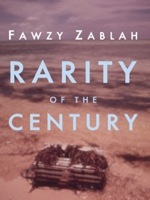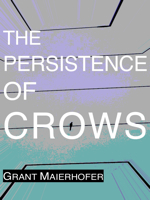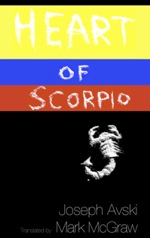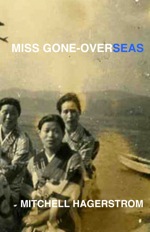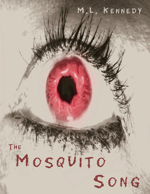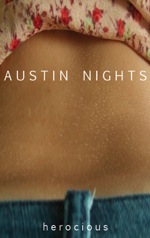Canadian Sunset
By Eddie Heywood and Norman Gimbel.
Once, I was alone,
So, lonely and then,
You came, out of nowhere
Like the sun up from the hills.
Cold, cold was the wind
Out there on that ski trail
Where your kiss, filled me with thrills.
A weekend in Canada
A change of scene was the most I bargained for
And then I discovered you,
And in your eyes I found a love that I couldn’t ignore
Down, down came the Sun.
Fast, fast beat my heart.
I knew, as the sunset from that day
we’d never part.
| | | | | | | | | | | | |
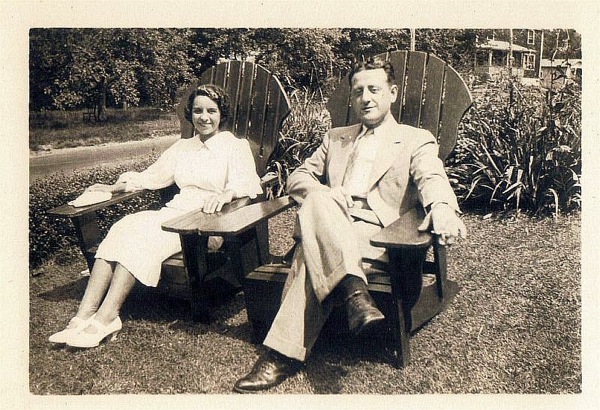
In 1958, my father earned a substantial amount of money contracting and building houses in San Bernardino, California. So my parents decided to take a long summer vacation in Rhode island, our home state, and visit various relatives there and in upstate New York. Because of my father’s financial success, he’d been able to afford airplane tickets for us. We flew out of Burbank, California on a rattle-trap Douglas DC–6 that belched its way east while stopping at various airports to refuel. I was ten years old, and to me, a cross-country flight of that magnitude taken in 1959 seemed as exotic as a Sputnik launch. I was terribly excited about taking my first airplane flight, even though my father had low-balled the adventure by buying tickets from a dubious company called United States Overseas Airlines, a non-scheduled airline, which meant that we had to arrive at the airport early in the morning and hang around the terminal until enough passengers appeared to fill the plane.
I recently discovered that a number of USOA’s planes had been in use during the Berlin Airlift in 1948, so we weren’t exactly styling. I can remember flames belching out of the engine cowlings after dark, and all along the way needing my mother to reassure me that we weren’t about to burst into a blazing fireball. In those days, airports closely resembled bus stations, and with the frequent stops pilots made to take on and let off passengers, we didn’t land in Rhode Island at Hillsgrove Airport until well after 2 AM. Upon landing we were instantly surrounded by a crush of family members who were delighted to see us, even though my father was fairly tipsy after draining a pint of whiskey during the long flight.
Back in San Bernardino, California, where we’d moved to in 1955, my parents had undergone some rough spots in their marriage, fueled by my father’s excessive drinking and my mother’s need to free herself from the constraints of her own family. They were both conflicted about the decisions that had led them to Southern California. My mother yearned to escape the claustrophobia of New England, and my father often wished he’d never left Rhode Island.
They decided to extend their vacation into Quebec, and they both seemed excited about our planned Canadian adventure. I’d guess now that they were probably struggling to rediscover the source of their romantic relationship. Judging from their guarded yet intimate interactions, there was quite a bit of mutual unhappiness and conflict between them, and they seemed always to be on the verge of shouting at each other. But, as I later realized, my mother couldn’t be made happy, and my father’s reaction was to hide out at the Knights of Columbus lodge and drink until dawn, only to return home and find my mother wide awake, with every light in the house glaring, wielding a flatiron and furiously pressing her anger into our cloths.
But despite their tensions, they were an adventurous couple, always ready to explore New England’s farther reaches. I have a photo of them, holding me, at Lake Sebec, Maine, taken in 1951, when I was only a few years old. They’d always claimed that one day a bear wandered into the clearing in front of their rented cabin, and my mother bravely snatched me out of danger. When I recently consulted a map, I was stunned to discover Lake Sebec’s deeply remote location, and I gained a new appreciation for their willingness to travel so deeply into the far north.
Now we were headed towards Quebec City, directly into a fading Canadian sunset, rocking along a two-lane highway, and gaining elevation as the sun began to sink below the horizon, with, improbably, a classic swing tune entitled “Canadian Sunset” drifting from the dashboard radio. Whenever a road or bus trip has carried me north, I could sense the curvature of the earth and feel it flutter in my stomach, as though the car might simply lift off and take wing. The memory of that sun-burnished afternoon has forever haunted me, and it seems to me now that, for no discernable reason that I could explain, a deep, inexplicable melancholy had filled the car, as though it contained all the frustrations and disappointments of everyone riding in it.
We were crammed into a borrowed 1952 Chevy with horsehair seats that made the car’s interior smell like a horse stable, my adoptive mother and father, Josephine and Alfred Del Gigante, his sister Melia, and her husband, who I can only remember as a slender, raspy-voiced Italian man named Gus, who was in the process of gaining American citizenship, and who in fact was briefly detained by Canadian customs until he supplied the proper documents to the chin-strapped Canadian Mounted Police at the border. If my parents were viewing their trip as a way to reignite their love lives, hauling Gus, Amelia and me along for the ride must surely have put a damper on love-making. But sexual deferral seems to have run in the family. When my parents married in 1928, they had to take my paternal grandfather along with them on their honeymoon. I don’t think my mother ever forgave my father for dragging the old man along for the ride.
Although I was only ten years old, I began consulting my father’s road maps, and I had somehow connected the dots that triangulated the eastern Canadian provinces and gained a fundamental sense of direction, so I began to offer occasional bits of navigational advice to my astonished father. Consequently, he’d let loose a quiet stream of Italian profanity under his breath. I never let on that I could understand him. Like most of my cousins, we’d learned to translate the saltiest Italian curses, and we kept it to ourselves. Neither of my parents had been fortunate enough to receive much education. Consequently, I could read and write better than my father, and while it singed his ego, he was also proud of my reading skills. But he was no dummy. During his life he’d constructed immense fishing vessels and dozens of classic Rhode Island houses. If something needed to be made from wood, he could build it. But a series of ship construction accidents had severely reduced his ability to engage in strenuous labor, and he wasn’t much at peace with his limitations.
Just before we left for Rhode Island, my parents had given me my first record player, and a few bucks to buy some disks. I discovered a tune called “Hang down your head, Tom Dooley,” a folk tune popularized by the Kingston Trio bemoaning the execution of an obscure hillbilly, but improbably performed with much gusto and good cheer. Who cared if they hung Tom Dooley? It sounded like a great way to meet your maker. But apparently, my father took the song’s message to heart, because it depressed him, and listening to it drove him crazy, so he permanently banned me from playing the record while he was at home. And now, along the road to Quebec, I kept humming it as we headed north. My father must have resigned himself to it, because I sung it incessantly. He probably had a few more nips from the bottle just to keep himself from strangling me and throwing me out of a car.
My parents had their vacation visiting obscure relatives in Providence who looked as though they’d just stepped out of the 19th century, barreling through quaint towns in upstate New York and visiting more obscure relatives that I’d never meet again, and examining the Baseball Hall of Fame, there to behold Babe Ruth’s locker, complete with his mitt, his uniform and an impressive plaque citing his batting statistics. As a child, I’d always been a faint-hearted sports fan, and I had only played Little League baseball to make my parents happy. I didn’t know who the Babe was, and I didn’t care, but my father was thrilled by visiting the hall, and I was delighted to see him so fulfilled. Years ago he’d seen the Babe in action at Yankee Stadium, and he deeply cherished the memory, an incident that he ranked just below the time he’d inadvertently passed Al Capone walking down a stairway in Chicago, surrounded by a phalanx of goons. In honor of this prestigious athletic visit, I pretended to be enthralled.
My father was astonished by the beautifully crafted bread ovens along the Saint Lawrence river, and he had been pulling over frequently and sampling the local wine, and the homemade bread that was stacked in tottering piles near the road. By late afternoon he’d drunk enough to become garrulous and quarrelsome, the result, no doubt, of drinking on an empty stomach. A rain storm suddenly burst open above us, and as soon as we arrived in Quebec City, my father decided that it was time to get a motel for the evening.
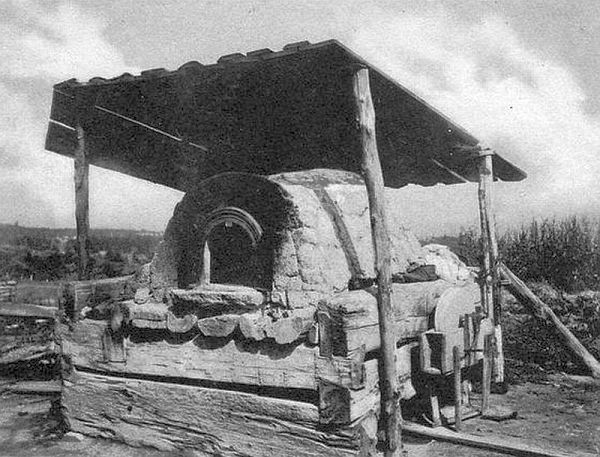
My mother wanted Chinese food, but my father wasn’t going for it. He became obstinate and demanded a steak dinner. Since Chinese restaurants don’t typically serve T-bone steaks, the hapless chef was forced to scramble along the street until one could be located somewhere in the back of a cafe. By now, most of the waiters had shot into the kitchen while my father continued ranting. He’d made money and financed a two-month summer vacation and he was going to have a goddamned steak. I don’t remember him having ever acted that way before. The Chinese cook delivered, my father ate his steak and then passed out on a motel bed.
By morning he’d recovered his sobriety, and we proceeded across Quebec towards Montreal.
Having boned up on my child’s version of The Three Musketeers, I had expected to encounter French castles and battlements along the road, and since my father had furnished me with a book that depicted various iconic Canadian images, I was prepared to inspect pipe-smoking Canadian men wearing garish Mackinaws, skimming lakes with sea planes, and paddling canoes across enormous rivers that glinted in the distant sunlight, none of which materialized on our journey. But I loved Quebec, and I found resonance there, and decades later I would discover that my paternal birth family migrated from Quebec to Rhode Island.
As Roman Catholics, we were honor-bound to visit various famous churches, especially the cathedral of Sainte Anne de Beaupré, where thousands of pairs of crutches hung from the pillars, supposedly proving that prayers whispered and votive candles lit in Saint Anne’s honor could miraculously cure the sick of various ailments, an experience that always had me muttering under my breath about “that shit again.” I had already served as an altar boy for a couple of years, and having closely viewed the business end of the Catholic Church, I had begun to view the entire operation with a great deal of skepticism, no matter how many crutches and shrines we examined. I was interested in French fries and gravy, and not the ghosts that seemed to clog every basilica we entered. In Montreal we made an obligatory stop in order to visit Saint Joseph’s Oratory, where a long set of stairs had been constructed so especially devout Catholics could climb them on their knees while praying, and it seemed to me that, with all the bowing and scraping we submitted ourselves to every Sunday at mass, the last thing I was inclined to do was to grovel my way up the stairs, and no one else in the car seemed inclined to make the climb.
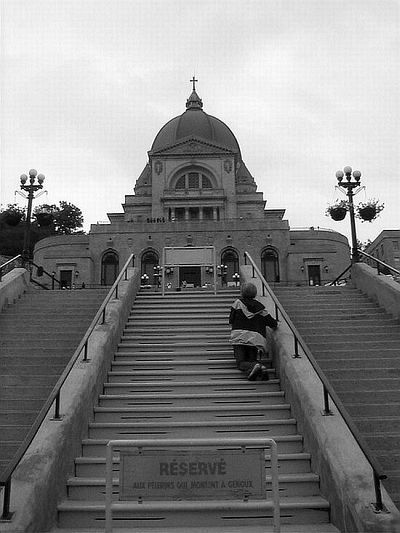
My father, a few of my uncles and seemingly half the Elks Club members in Rhode Island engaged a charter bus and headed to Fenway Park, there to watch the New York Yankees and the Boston Red Sox duel through a double-header that featured the ongoing saga of the great Maris-Mantle home run record duel. All I remember about that day is that I ate a lot of frankfurters and the players all looked disappointingly tiny. Later that night, various Elks had gotten themselves thoroughly drunk and awash in cheap Narragansett beer, and formed a long line to the toilet, merrily cackling their way back to Providence.
In truth, two years of living in Southern California had cured me of ever wanting to live in Rhode Island again. I loved the mountains, the Mexican food and the endless mountain ranges, and everything and everyone back in Rhode Island seemed quaint and old-fashioned.
| | | | | | | | | | | |
Our last destination before we headed back to California was an obscure lake on the New York-Pennsylvania border, there to link up with more distant relatives I’d never met. Both of my parents seemed relaxed there, and I watched my father flirt with my mother, the first evidence I’d ever seen of them so deeply connected to each other in a very long time. I had never realized that they shared a romantic life, and it pleased me to see them enjoying each other’s romantic company. My father seemed more sober then, and truly happy, tipped back in an Adirondack chair and beaming softly. I distinctly remember sitting on the ground behind them, watching them hold hands and whisper to each other, and surrounded by the mysterious lake’s deeply wooded edge, the setting seemed to have animated them and drew them together, at peace with each other.
It seems to me now that there was something propelling him to take the trip back to Rhode Island, as though he was making the rounds of the family and friends he knew best one last time, even if he didn’t understand that himself. An air of finality surrounded the whole trip, and once he’d gotten home, he seemed unstable, and less cock-sure. Maybe he knew something we didn’t, a doctor’s warning, some mysterious pains, or just surrendering to the ghosts around him, because six months later he died, and I never saw that Canadian sunset again. Hang down your head, Tom Dooley.



